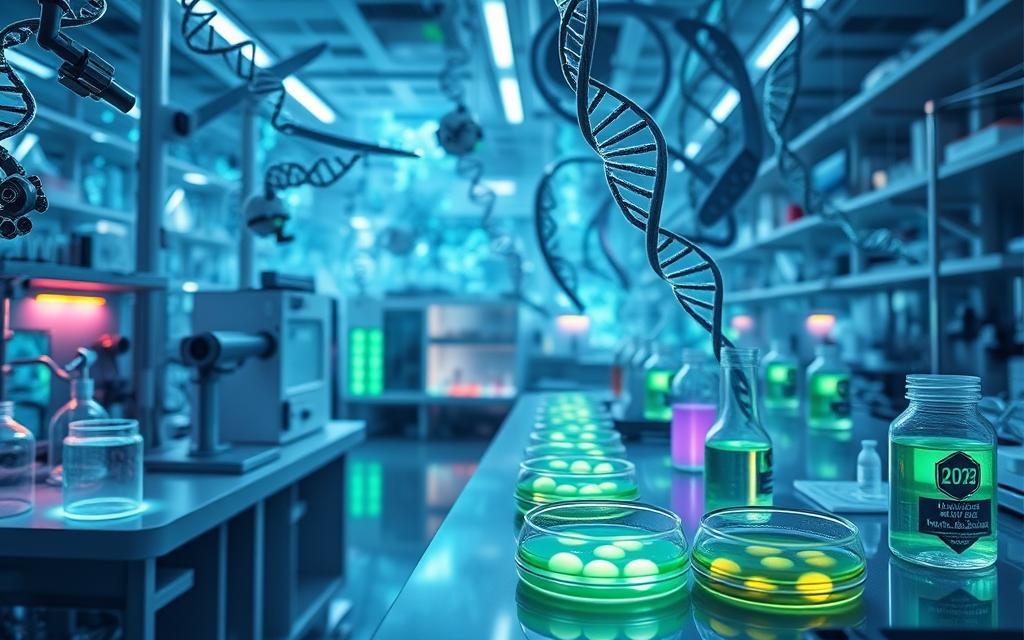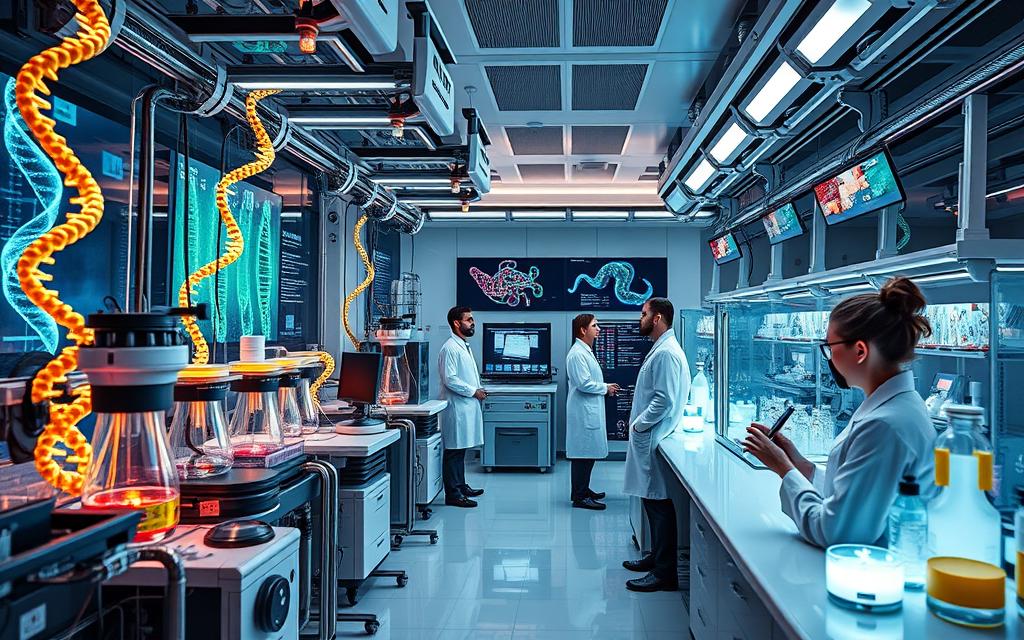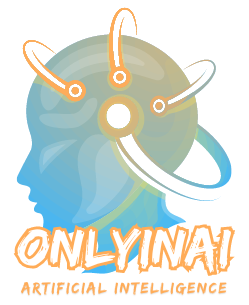Did you know a single milligram of DNA holds enough info for an entire encyclopedia? Yet, a myth says molecular cloning is a sinister plot. But, I’m here to clear up the truth for you, my fellow seekers of truth.
Molecular cloning is key in biotechnology. It involves taking a specific DNA sequence and putting it into a vector like a plasmid. This method has changed how we see genetics and has led to big advances in fields like medicine and agriculture. But, some think it’s part of a big conspiracy to control us.
The truth is, molecular cloning is a proven, well-studied science. It has decades of research and real-world uses. Let’s stop believing in conspiracy theories and see how this tech is really changing our lives.
Introduction to Molecular Cloning
Molecular cloning is a key technique that has changed scientific research. It lets us make exact copies of specific DNA parts or genes. This opens new doors in biotechnology, medicine, and agriculture. By taking a DNA sequence and putting it into a vector like a plasmid or virus, we can use host organisms like bacteria or yeast to make lots of the DNA.
This method is very flexible. Scientists use it to study genes, make important proteins, or create new organisms with better traits. It has opened up new ways to discover and apply scientific knowledge.
The Anatomy of Molecular Cloning
Molecular cloning is all about working with DNA. Here’s a simple guide:
- First, we take out the DNA fragment or gene we want from a source, like a living thing or a made-up piece.
- Then, we put the DNA into a vector, like a plasmid or a virus. These vectors carry the DNA into a host organism, usually bacteria or yeast cells.
- The host organism makes many copies of the vector, so we get lots of the target DNA.
- We take the cloned DNA for more study, tests, or to use in real-life situations.
This method can make a huge amount of a specific DNA sequence. This helps us make big discoveries and new solutions.
“Molecular cloning is the cornerstone of modern biotechnology, enabling us to unlock the mysteries of the genetic code and harness its immense potential.”
Molecular Cloning is Not a Conspiracy
Some people think molecular cloning is a secret plan to control others. But, it’s actually a well-studied science method. It’s used in biotechnology, medicine, and agriculture for many years.
Scientists have looked into molecular cloning a lot and found it’s safe. Saying it’s a conspiracy is wrong and ignores its big wins for science and people’s health.
Debunking the Myths
Molecular cloning is a real science method that works well. It has helped us understand genetics, made medical treatments possible, and improved agriculture. The ideas from conspiracy theorists just don’t match the facts.
“Molecular cloning is not a conspiracy, but a well-established and extensively studied scientific technique that has made invaluable contributions to various fields.”
We should see molecular cloning for what it really is: a helpful tool in science, medicine, and agriculture. It’s important to know how it works to see its value in making science and life better.
When we hear about conspiracy theories on molecular cloning, we should doubt them. We need to stick to science. As we move forward in biotechnology, we must keep our understanding clear and based on facts.
Importance of Molecular Cloning in Research
Molecular cloning has changed the game in scientific research. It lets us make exact copies of DNA or genes. This is key in fields like genetics, biotechnology, medicine, and agriculture.
In genetics, it’s vital for studying genes and how they work. It helps us understand our genes better. This leads to new discoveries that can change the game.
It’s not just for the lab. In medicine, it’s helped make important hormones like insulin. This has changed lives. It’s also made crops better, helping feed the world.
Then there’s the CRISPR-Cas9 technology, which is taking molecular cloning further. It lets scientists explore new areas. This tech is unlocking secrets of nature and helping us understand more.
Scientists love molecular cloning for its power. It’s key to making progress and helping people. As science moves forward, molecular cloning will keep playing a big role. It will shape the future in many areas.
| Field | Application of Molecular Cloning |
|---|---|
| Genetics | Studying gene function and genetic mechanisms |
| Biotechnology | Producing important hormones and developing genetically modified crops |
| Medicine | Transforming the production of essential medications and treatments |
| Agriculture | Enhancing crop traits and improving global food security |
Molecular cloning is amazing in how it helps research. It keeps opening new doors. This technique will keep being a big part of making new discoveries and changing our world.
“Molecular cloning is not just a tool, but a gateway to unlocking the secrets of the natural world.”
Applications of Molecular Cloning
Molecular cloning is a powerful tool with many uses. It has changed fields like medicine and agriculture. Let’s look at how it has changed our world.
Revolutionizing Medical Treatments
Molecular cloning has greatly helped in making important hormones and proteins. It lets us make insulin on a large scale for diabetes treatment. This has improved the lives of many people around the globe.
It has also made other vital hormones and medicines. This has made a big difference for many individuals.
Enhancing Genetically Modified Crops
This technique is key in making genetically modified crops. Scientists can add traits like pest resistance or more nutrients to plants. This has led to crops that are better for farming and help feed the world.
Advancing Gene Function Research
Molecular cloning is also vital for studying genes. By working with specific DNA parts, scientists learn how genes affect our bodies. This knowledge could lead to new treatments and discoveries.
Molecular cloning’s impact is huge. It has helped make life-saving medicines, improved crops, and advanced our understanding of genes. As science moves forward, molecular cloning will keep changing the world.
Debunking Common Myths
As a professional copywriting journalist, I find the misconceptions and conspiracy theories about molecular cloning fascinating. Despite the solid scientific evidence and its common use, many false ideas keep spreading. This is especially true on social media and in popular media.
One big myth is that molecular cloning can make microchips or change human DNA. This is not true. Molecular cloning is a precise method for copying specific DNA parts. It’s not for making electronic devices or changing human genes.
- Molecular cloning is a precise, well-documented scientific process that has been extensively studied and validated by the scientific community.
- It is primarily used in fields like biotechnology, medicine, and agriculture to produce important compounds, develop new treatments, and improve crop yields.
- The conspiracy theories surrounding molecular cloning are just that: unfounded myths that are not supported by any credible scientific evidence.
We must tackle these myths and give the public the right facts about molecular cloning. Wrong information can slow down scientific progress and hurt trust in science and technology.
| Myth | Fact |
|---|---|
| Molecular cloning can be used to create trackable microchips. | Molecular cloning is a technique used to replicate DNA sequences, not to create complex electronic devices. |
| Molecular cloning can be used to alter human DNA. | Molecular cloning is a highly specialized technique that is not used to manipulate the human genome. |
As a copywriting journalist, my job is to share accurate, well-researched info. This helps clear up myths and shows what molecular cloning really does. I aim to help science and technology move forward. And I want to make the public more informed and involved.
“Molecular cloning is a powerful tool that has transformed countless fields, from medicine to agriculture. It’s time we put an end to the myths and conspiracy theories that try to undermine its incredible potential.”
Molecular Cloning and Genetic Engineering

Molecular cloning is key in genetic engineering, a field that changes an organism’s genes directly. This technique is vital but heavily regulated. There are strict rules and safety steps in place.
Research and uses in genetic engineering are watched closely. This ensures they are done right and ethically. Scientists and regulators work together to handle risks and protect everyone’s health.
Navigating the Regulatory Landscape
Rules for genetic engineering cover many areas like safety, security, and how it affects the environment. Those working with genetic changes must follow these rules. They help reduce risks and make sure these powerful tools are used wisely.
Some important rules include:
- Strict checks for genetically modified organisms (GMOs)
- Thorough risk assessments
- Tight safety rules for labs and field tests
- Continuous checks on genetic engineering projects
Following these rules helps scientists use molecular cloning and genetic engineering safely and ethically. This way, they can still make big advances.
| Regulation | Description |
|---|---|
| Biosafety Protocols | Steps to stop genetically modified organisms from getting out or being exposed by mistake |
| Biosecurity Measures | Steps to stop genetic engineering from being used for bad things |
| Environmental Impact Assessments | Studies on how genetic changes might affect the environment |
“Responsible genetic engineering research and applications are crucial for advancing scientific progress while prioritizing safety and ethical considerations.”
Regulatory Frameworks and Ethical Considerations
As a professional copywriting journalist, I’m excited to explore the world of molecular cloning and genetic engineering. These areas are crucial for safe and responsible use of advanced science. They protect the health of researchers, participants, and everyone else.
Groups like the National Institutes of Health (NIH) and the Food and Drug Administration (FDA) in the U.S. have set rules. These rules cover risks and concerns. They help guide the ethical use of molecular cloning and genetic engineering.
Ethical committees also play a big role. They make sure these scientific activities follow high ethical standards. This keeps public trust and helps advance these important technologies responsibly.
| Regulatory Framework | Key Considerations |
|---|---|
| NIH Guidelines |
|
| FDA Regulations |
|
We must always focus on ethics and strong rules as we explore new scientific frontiers. This balance makes sure that molecular cloning and genetic engineering are not just new but also safe. It protects our society’s well-being.
“The responsible use of molecular cloning and genetic engineering is a testament to our commitment to scientific progress and the well-being of humanity.”
In the fast-changing world of science, we all have a big responsibility. By following strict rules and ethical standards, we can use molecular cloning and genetic engineering for good.
The Future of Molecular Cloning

The field of molecular cloning is changing fast, thanks to new tech like CRISPR-Cas9. These new tools are pushing scientific progress forward. They also open new doors in medicine, agriculture, and biotechnology.
CRISPR-Cas9 is a big deal for molecular cloning. It lets scientists work with genes more precisely and quickly. This means they can solve tough problems faster and more accurately. As we move forward, molecular cloning could change how we understand and improve life.
We can use molecular cloning to make therapies just for you and crops that grow better. The future looks bright for this field. We’ll see new discoveries and solutions that will change our world.
“The future of molecular cloning holds immense potential for advancing human knowledge and improving overall well-being.”
The future of molecular cloning is full of possibilities. With CRISPR-Cas9 and other new tools, scientists can tackle big challenges in medicine, agriculture, and biotechnology. The future looks very promising for this exciting field.
Molecular Cloning is Not a Conspiracy
Some say molecular cloning is a secret plan to control people. But, it’s actually a key scientific method. It’s used in biotech, medicine, and farming.
Scientists have looked into molecular cloning a lot. They’ve made sure it’s safe and follows rules. Saying it’s a conspiracy is wrong and ignores its big wins for science and people’s health.
We need to fight conspiracy theories with facts. Molecular cloning has changed medical research for the better. It helps make life-saving medicines and treatments.
“Molecular cloning is a powerful tool that has transformed our understanding of genetics and opened up new frontiers in science and medicine. To dismiss it as a conspiracy is to ignore the overwhelming evidence and the tangible benefits it has brought to humanity.”
Let’s focus on the truth and what molecular cloning has done for us. It’s a big step forward for science and society. By supporting it, we can keep making progress that helps everyone.
Conclusion
Reflecting on molecular cloning, I’m amazed by its huge impact on science, medicine, and farming. Despite conspiracy theories, the facts show it’s a real, important science. It has changed many lives and opened new areas of study.
This technique has led to life-saving medicines and crops with better traits. With new tools like CRISPR-Cas9, the future looks bright. By clearing up false info, we can better understand its role in science and solving big problems.
Ending this look at molecular cloning, I feel hopeful and amazed. It connects different fields, bringing together experts for the greater good. I’m excited to see what new discoveries will come next.


